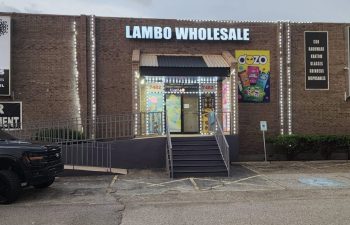 Planning and preparation can help persuade lawmakers that your business is a good fit for the community
Planning and preparation can help persuade lawmakers that your business is a good fit for the community
Being in the zone is good thing if you’re playing hoops. If you’re in a business looking to settle in a neighborhood with restrictions, not so much.
Plainly put, commercial zoning regulations control the type of activities a business can conduct in a specific location. Such restrictions may deal not only with business classification, but also with parking allocation, building occupancy, signage, even health and safety. Many of these ordinances have evolved over a great deal of time, and are often very complex in nature.
It’s common to hear about alternative businesses, like smoke shops, that have been restricted from opening up in one part of town, or even on a specific street. Often these rules are to intended to make the area safer for all. Sometimes though, stigma, fear and misunderstanding prompt officials to be overly cautious in their planning efforts.
In Phoenix, Arizona, for instance, where a councilman remarked that, “There are many places where it is frankly easier to buy drug paraphernalia than it is to buy a fresh apple,” the city recently amended the zoning ordinance to reduce the percentage of floor space devoted to tobacco-oriented products in stores from 15 percent to 5 percent, and to increase the spacing separation requirement from 500 feet to 1320 feet between tobacco-oriented retailers and places like schools, parks, churches and daycare facilities.
In Fremont, California, businesses can be classified as a “head shop” if their merchandise includes items that “could be construed . . . as being intended for the purpose of ingesting illegal narcotics.” Despite the ambiguous definition, such classification requires a special operating permit that the planning commission can solely accept or reject.
So, what are you supposed to do if you’ve been told no-go whether it relates to the specific type of business, remodeling an existing space, signage, etc? Before you throw in the towel, you might want to take it up with city hall.
If a business wants to do something that is not in conformity with the zoning code, it can apply for a variance, and for that you’ll need to present your case to the zoning board of appeals. As a business owner, you will have the opportunity to argue your side and members of the public can voice their opinions as well. In the end, what counts is who has the most articulate, reasonable, competent evidence, and whose presentation is most persuasive.
Dispel the Myths
Help decision makers understand the reality of your business and eliminate any out-dated impressions. Present licenses you’ve attained and awards that you’ve earned to show your commitment to being a legitimate part of the community. If your customers include local law enforcement, health care workers, and other adult professionals, get them on your side to help sway opinions.
Get Support
If others can advocate the potential benefit to the community, it may be easier to generate backing for your business. Seek support from trade associations, the chamber of commerce, and a business development office in the community. This is a good opportunity to have community members and other nearby businesses offer support through a written petition. It is also effective to ward off any criticism before the hearing by reaching an agreement with those who may object to your business moving in.
It might be hard to win a fight against city hall, but with preparedness, professionalism and persistence, you’ll have a good chance of getting them to bend the rules in your favor.




















